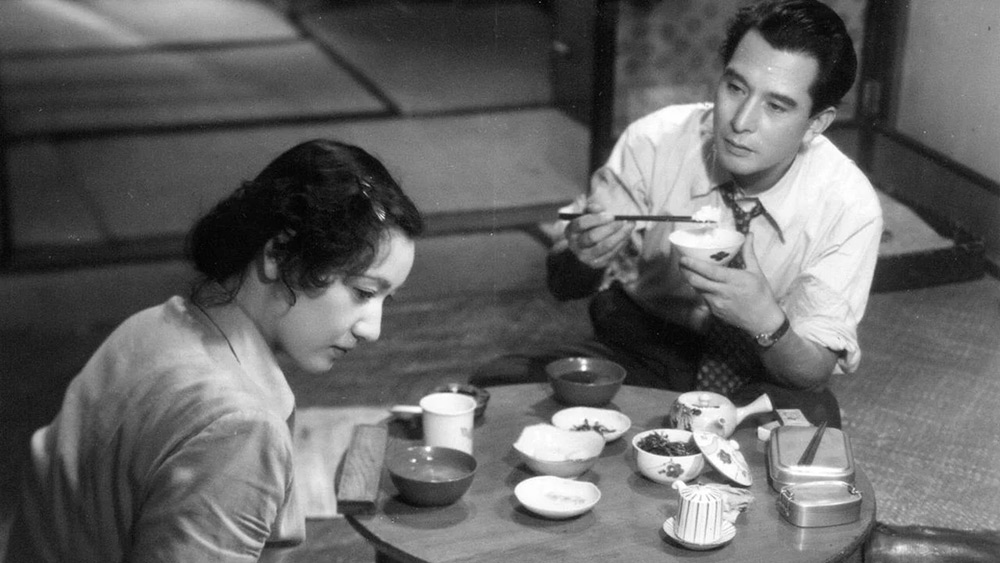Of the 89 films Mikio Naruse directed, six of them were adaptations of Fumiko Hayashi novels. Both figures shared a profound interest in Japanese women who lived on the margins of a nation in recovery. In Late Chrysanthemums (1954), a group of four ex-geishas scramble to stay afloat in postwar Tokyo. Released a year later, Naruse’s Floating Clouds (1955) similarly examines the city in disrepair through an ill-fated wartime affair. Naruse and Hayashi’s collaborations were not merely about the individual suffering of heartbroken women, but rather the collective burden that is forced upon them by traditional patriarchal values and an emergent consumerist culture. These ideas are expertly distilled into Naruse’s first adaptation of a Hayashi novel, Repast (1951), released the same year the feminist literary icon passed away.
Set in Osaka, Repast follows the daily rhythms of housewife Michiyo (Setsuko Hara). Originally from Tokyo, Michiyo moved away against her parents’ wishes to marry salaryman Hatsunosuke (Ken Uehara). Now, years later, her spouse’s rebellious and flirtatious niece comes knocking at their front door after running away from an arranged marriage. An already strained relationship is pushed to a near breaking point, leaving an exhausted Michiyo full of regrets and longing for agency. Like in Naruse’s other films, a woman’s situation is always a precarious one. Whether she is the head hostess at a Ginza bar or the wife of a salaryman, she is bound to institutions built to pamper men.
Screen legend Setsuko Hara is no stranger to the domestic space. A mainstay of the shōshimin-eiga—a genre centered around lower middle-class life—Hara is best known for her work in Yasujiro Ozu’s family dramas. Unlike the gentle embodiment of a filial daughter she performs in films like Late Spring (1949) and Tokyo Story (1953), Hara unapologetically sinks into the role of an overworked woman in Repast. The tedium of running errands, doing the laundry, and preparing meals for her husband has given her a deep-set pair of eye bags. Her clothes are noticeably older than her friends’ elegant kimonos. At the end of a long day, the disheveled housewife slouches onto the tatami floors of her home.
One of Naruse’s gifts as a filmmaker is his ability to capture the miniature joys of daily life. In his signature slow-burn editing style, he begins the film cherishing the small beauties found in Michiyo’s domesticity. Her morning walks by the train tracks, gossiping with neighbors on the block, and a café outing with friends are all idyllic scenes. Yet, these beautiful interactions and locations gradually shift into something more tragic. Friends with wealthier husbands, or more independent lifestyles, make her feel insecure. When she runs away to Tokyo, she becomes the object of gossip. And while taking the train to Tokyo may grant her a temporary reprieve from marriage, moving back home will do little to detach Michiyo from a suffocating system of social expectation and financial dependency.
Repast screens this afternoon, June 14, at Metrograph on 35mm as part of the series “Mikio Naruse: The World Betrays Us.”



